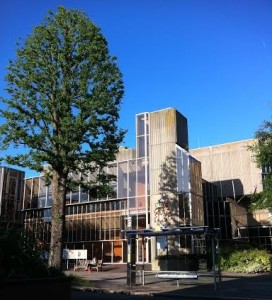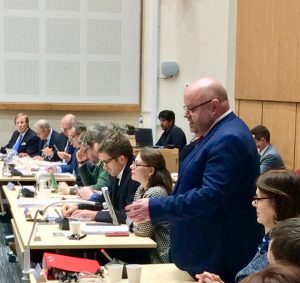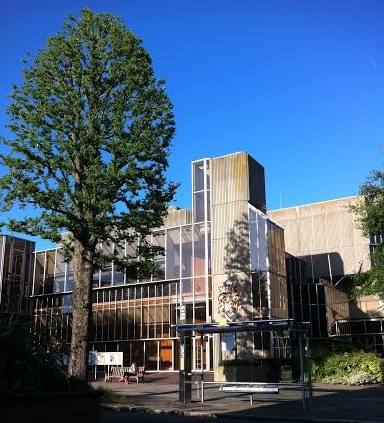
Councillors are to start meeting in person again this month after a year of virtual meetings in response to the coronavirus pandemic.
But meetings of the full council will be smaller – with a maximum of only 14 out of 54 councillors likely to gather in the town hall chamber.
The changes at Brighton and Hove City Council are being made after the expiry of a temporary change in law which allowed meetings and votes to take place online during the pandemic.
Council leader Phélim Mac Cafferty has raised concerns because many younger councillors are not yet eligible for vaccination – four of them are under 30.
And about half the members of the council have had only their first covid jab, with the current council membership containing a higher proportion of under 60s than in the past.
All those attending meetings will be required to wear a mask and to have had a negative result for covid-19 from a lateral flow test.
A one-way system will operate at Hove Town Hall, in Norton Road, where meetings in person will take place. The chamber there is bigger than the one at Brighton Town Hall and the seats are not fixed at Hove, making social distancing easier.
Meetings of the full council are likely to consist of five Greens and five Labour councillors, with three Conservatives and one Independent.
Councillor Bridget Fishleigh has put herself forward as the only member to have been elected as an Independent. Three others have become Independent since being elected on a party ticket.
All committees, apart from the Planning Committee, are likely to be reduced to just three or four elected members.
Planning Committee meetings are expected to include all 10 councillors. A committee of just three members met at the start of the first lockdown but they all wanted the input of their colleagues.
Licensing panels will continue to hold virtual hearings, with webcasts on the council website, because the panels are governed by a different legal framework.
And the duration of meetings is expected to be curtailed as committees will be asked to deal only with the most urgent matters.
Other decisions will be delegated to officials who will be expected to consult leading councillors.

Some committees have non-voting co-opted members or members with a standing invitation to attend. They will be expected to join meetings remotely.
But voting co-optees – such as the representatives of the Brighton and Hove Clinical Commissioning Group (CCG) who sit on the council’s Health and Wellbeing Board – are likely to attend meetings in person.
The council plans to admit about half a dozen members of the public who will have to book tickets in advance.
Those asking questions, presenting petitions or leading deputations will be allowed to attend in person when no alternative arrangement is possible – but they should leave after they have spoken unless they have a seat booked in the public gallery.
One member of the press can attend in person with others expected to take part using virtual meeting software.
The council will continue to webcast meetings on its website.

The arrangements are due to be discussed by the council’s Policy and Resources Committee which is scheduled to meet at 4pm next Thursday (13 May).
They are expected to remain in place until the end of July when they will be reviewed.
The decision for all councils to revert to meetings in person was made by the government. It was challenged in the High Court but a judgment last week upheld the switch back to debates and votes in the town hall chamber.









Was it necessary to illustrate this article with a photograph of former councillor Morgan?